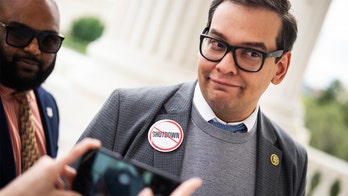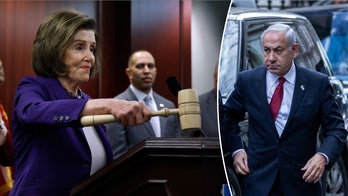What would the Obama administration have done with Usama bin Laden if he were captured, rather than killed?
That's the question posed to Attorney General Eric Holder during a House hearing Tuesday. Rep. Dan Lungren, R-Calif., wanted to know if Holder would have opposed a military trial for the Al Qaeda leader, in the same way Holder has opposed a military trial for alleged 9/11 conspirator Khalid Sheikh Muhammad. Holder recently reversed course on the 9/11 case, sending it back to the military for prosecution.
Holder dismissed Lungren's inquiry as "a hypothetical" that's not "particularly relevant." But, Holder told Lungren, "The act that we took [again bin Laden] was both lawful, legitimate and appropriate in every way. The people who were responsible for that action -- both in the decision-making and the effecting of that decision -- handled themselves I think quite well."
In response, Lungren said Holder's "strong" statements in favor of civilian trials made it "an appropriate question to ask you whether or not ... you would have opposed a military trial for Usama bin Laden and rather given him the protections of a civilian trial."
Holder did not answer the question directly, but he did offer some praise for military commissions, saying his position on such trials and his ill-fated initial decision in the Muhammad case are "often times mischaracterized."
"I don't have a problem with the military commission, but the decision that I made in the Khalid Sheikh Muhammad case was based on my review of facts, the evidence, and tactial decisions -- tactical decisions -- that no member of Congress had the ability to see," he said. "[It] dealt with a whole variety of things that I uniquely had access to and that's why I made that decision, and why I've been so vehement in my comments about what I think is an inappropriate and wrong decision by Congress to block our ability to try the case in that forum."
More than a year ago, Holder was asked during a House hearing whether he would prosecute bin Laden in a civilian court, should the world's most-wanted terrorist ever be captured.
At the time, Holder similarly dismissed the question as outside "reality" and "a hypothetical that will never occur."
"The reality is that we will be reading Miranda rights to the corpse of Usama bin Laden. He will never appear in an American courtroom," Holder said. "That's a reality. That's a reality."
Nevertheless, on Tuesday, Lungren seemed to suggest an inconsistency in how the Obama administration applies the law to high-level terrorism suspects.
Holder has repeatedly said some enhanced interrogation techniques, particularly water-boarding, are illegal. But on Tuesday, he said that if intelligence obtained from enhanced interrogations during the Bush administration led to Sunday's strike against bin Laden, the deadly strike would have been legally sound. The time that has elapsed between "problematic" enhanced interrogations of terror suspects and "the action that was taken just two days ago was sufficiently long so that the action [would] still be considered legal," Holder said.
In fact, the chairman of the Senate Intelligence Committee, Dianne Feinstein, said Tuesday an investigation by her committee showed that no information from enhanced interrogations led U.S. forces to bin Laden.
"To the best of our knowledge, none of it came as a result of harsh interrogation practices," she said.
Lungren asked Holder whether U.S. forces could have legally killed Muhammad rather than capture him, in the same way they killed bin Laden.
Lungren wondered whether it seems "inconsistent or a difficulty of moral relevance" for Holder and others to say the water-boarding of Muhammad "so shocks the conscience" but "it would not shock the conscience to put a bullet in his brain."
Holder insisted there are substantial differences between the two cases. In particular, Holder said, "We had the ability to capture [Muhammad] as opposed to kill him."
"One has to take into account a whole variety of things," Holder added. "And when you're on the scene, you want to get the person you're trying to capture, but you also have to make sure that you're protecting the lives of the people who are on our side and who put themselves at risk. And it is for that reason that there is a safety component there, and the kill or capture component raises itself in a way that it would not when it comes to the interrogation of Khalid Sheikh Mohammed or somebody else."




